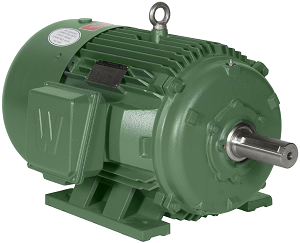Deepak Engineering is a leading provider of a wide range of products and solutions, encompassing single phase and three phase AC motors, NEMA and IEC motors, low and medium voltage motors, PMDC motors, and radial and axial flux motors. With a focus on delivering high efficiency motors for the toughest industries worldwide, Marathon offers electric motors and integrated motor/control solutions with IE4 and higher efficiencies.
Our motors are designed, engineered, and built to meet a diverse range of needs, ranging from 1/4 horsepower to over 5000 horsepower, with voltages from 120VAC to 13.8kV. Our NEMA and IEC motors are utilized globally in both commercial and industrial applications. With over 100 years of manufacturing experience, state-of-the-art engineering and production, and comprehensive service, we ensure that our motors are of the highest quality from the earliest planning stages.

Marathon motors are trusted for a wide range of applications, including variable speed motors for commercial settings, motors for pumping systems, high-speed extruders, and “Mission Critical” motors used on ice breakers in the Arctic. When it comes to choosing the right motor, Marathon’s extensive expertise and reliability make us the preferred choice.
Choosing the right electric motor can be a complex task, with various details and specifications to consider. One of the easiest scenarios is when you have the motor you want to replace, and you can simply provide the vendor with the motor’s identification plate, usually affixed to the side, which contains important specifications such as power/current requirement (AC or DC), power type (single phase or three phase), material (cast iron vs cast aluminum), speed rating, and power rating. However, some information, such as mounting options, may not be listed on the identification plate as they can vary depending on customer orders, so additional considerations are necessary.
To help you make an informed decision, this article will guide you through key questions when choosing an electric motor.
AC or DC Motor?
The most fundamental difference between motors is the type of current that powers them.
AC Motors:
- Known for their high efficiency.
- Are quieter and more flexible.
- Available in both single-phase and three-phase configurations.
- Convert energy from magnetic fields generated by the coils.
On the other hand, DC Motors:
- Known for their output range.
- Capable of running at variable speeds.
- Available only in single-phase configuration.
- Convert energy from external power sources with constant voltage, such as batteries.
At our store, we offer a wide range of AC induction motors from TechTop Australia. You can refer to their latest catalogue for more information.
Single-Phase or Three-Phase AC Motor? In general, single-phase motors:
- Run on a single-phase power source.
- Are simpler and easier to build and maintain.
- Are commonly used in light household, consumer, and industrial applications with lower power requirements, such as conveyors, fan pumps, fans, washing machines, and pumps.
On the other hand, three-phase motors:
- Run on a three-phase power source.
- Are more complicated and harder to build and maintain.
- Are commonly used in heavy-duty commercial and industrial applications with higher power requirements, such as driving lathes, cranes, agitators, and crushers.
Additionally, there are dual voltage motors designed to use either of two stated voltages (usually 240V and 480V) but wired differently to maintain the motor output. These are commonly used in areas where 240V is not available, providing the option to take one of the three phases from the mains supply and run with a neutral to get 480V.
Cast Aluminium or Cast Iron? When it comes to motor casing, you have the choice between cast aluminium and cast iron.
Cast Aluminum Electric Motors:
- Are aesthetically more pleasing.
- Have better heat dissipation.
- Corrode less easily.
- Are lighter and easier to install.
On the other hand, Cast Iron Electric Motors:
- Are made of a more robust casing/shell, capable of enduring harsh conditions.
- Have higher mechanical strength.
- Known to last much longer.
- Are heavier and harder to install.
Consider these factors, along with other specifications, when making your decision, such as comparing two similar motors in terms of specifications, where one (the cast aluminium motor) may be significantly lighter than the other (the cast iron motor).